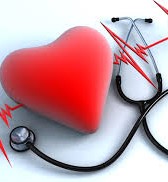Shetty hospital begins local stroke study
 (CNS): People aged 65 and over are being asked to take part in a health screening study which will be conducted by doctors at the new hospital in East End to protect against stroke or Atrial Fibrillation in the elderly population. Health City Cayman Islands is looking for over 3,000 people to take part and the free screenings will be taking place around the Cayman Islands throughout October. The tests are non-invasive and powered by an iPhone app that reads pulse vibrations. They will takes under 10 minutes to complete and will help Cayman’s older population become aware of their risk of having a stroke.
(CNS): People aged 65 and over are being asked to take part in a health screening study which will be conducted by doctors at the new hospital in East End to protect against stroke or Atrial Fibrillation in the elderly population. Health City Cayman Islands is looking for over 3,000 people to take part and the free screenings will be taking place around the Cayman Islands throughout October. The tests are non-invasive and powered by an iPhone app that reads pulse vibrations. They will takes under 10 minutes to complete and will help Cayman’s older population become aware of their risk of having a stroke.
The information from the screenings will be used to compile a history-making study, called the Cayman Islands Atrial Fibrillation for Elderly (CAFE) study, which is the first of its kind in the Cayman Islands and Caribbean, the hospital stated in a release this week about the planned medical research. The screening is expected to empower people so that they understand their own potential risk for having a stroke and make Cayman a leader in the region in stroke prevention, doctors said.
Dr Ravi Kishore, Chief Interventional Cardiologist and Electrophysiologist at Health City Cayman Islands, explained that many people do not show any outward signs that they have a higher stroke risk, hence the need for this important study.
“We will be screening for Atrial Fibrillation (Afib), otherwise known as arrhythmia, which is an abnormality of the rate or rhythm of the heart. It can beat too fast, too slow or in an irregular fashion. Often people don’t realise that they have Afib, but the condition needs to be diagnosed because it can lead to a stroke,” he said.
Dr Kishore explained that there are millions of people around the world with Afib, with 2010 estimated numbers globally running at 33.5 million for men and 12.6 million for women, so it is a huge problem world-wide. Major risk factors for developing Afib include; if a person is aged over 65, if they suffer from high blood pressure, if they have coronary artery disease, heart failure, valvular heart disease or congenital heart disease. Other risk factors include if a person suffers from sleep apnea, hyperthyroidism (too much thyroid hormone), obesity or diabetes. In addition, if they suffer from lung disease, have a family history of Afib or have a history of smoking and alcohol abuse, then they are more likely to suffer from Afib.
Dr Irka Ebanks, who will be leading the research study and screenings, said it was extremely important to screen people because AFib does not have obvious warning signs.
“When symptoms do occur, they often include palpitations, chest pain/tightness, dizziness, breathlessness, fatigue or lack of energy,” she said. “These symptoms do not always immediately indicate Afib, so screening people means patients themselves may be better equipped to understand the warning signs and at the same time we will have the information we need to help diagnose the condition in a more timely manner.
“Speed is of the essence in such a case: the sooner a patient receives medical care following a stroke the better the prognosis,” the doctor added.
For more information call 1 (345) 945-4040 or visit healthcity.ky
Related article on CNS Business:
Category: Health


It is only as good as it can do? In other words, lifestyle changes? Eatign right? Getting off the couch and exercising?
I am the only sibling of my family that doesn't have hypertension? The rest do, as they eat what they want. Drink what they want and do no exercise?
So now the truth comes out, this whole thing was a conspiracy to use Caymanain to test new medical procedures. We are not guinea pigs here people.
You are a real donkeh, and a perfect example of why Cayman will never advance its mentality. Instead of being happy and thankful that our island has a brand new hospital, some wonderfully expensive new medical equpiment and trained personell to operate said equipment you instead suggest Caymanians are being used as guinea pigs. First of all, your idea that we would be used as guinea pigs is ridiculous because Cayman doesnt have a population that is large or varied enough to conduct any kind of scientific experimentation that would be reproducible and verifiable in any scientific community, so you can relax about that. And second of all, there's no university on the island that has any sort of research background that would support any serious studies or experimentation or lab testing. Get real, and be thankful for what we have. At least we wont have to be getting charged thousands to be flown off island in an air ambulance because the whole island doesnt have a freakin' MRI.
Well done! Its great to see some studies of medical academic interest finally being undertaken. Kudos to Dr Ravi Kishore and Dr Irka Ebanks.
Dr Sidney O.Ebanks
Who is Dr Irka Ebanks?
CNS: Read this
You need to keep up with the news – she is a young Caymanian doctor at Health City!
Many thanks, CNS!